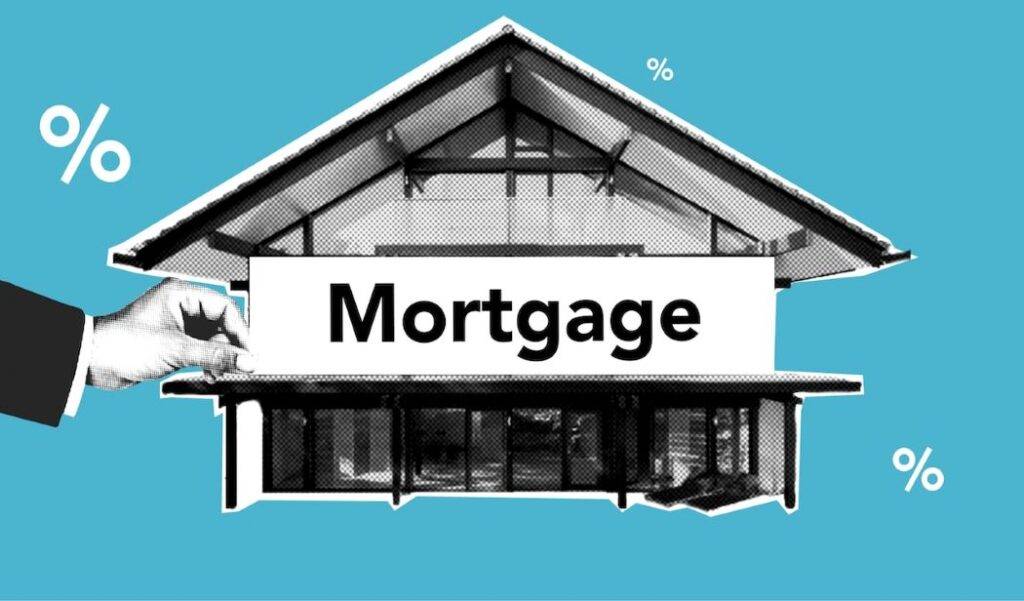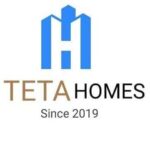Navigating the intricacies of the Nigerian mortgage and loan market, and securing a mortgage loan in Nigeria can be a challenging task. But in a rapidly evolving real estate landscape, the dream of owning a home looks more attainable than before. One of the ways to achieve this goal is through mortgage and property loans. According to Dataphyte, Nigeria’s housing deficit soared from 7 million in 1991 to 28 million in 2023.
The aim of this article is to guide you through the crucial steps, and provide you insights on how to secure a property loan in Nigeria.
What to Do Before Applying for a Mortgage Loan in Nigeria

1. Assess your financial readiness (means of income must be verifiable)
Having a verifiable means of income is a prerequisite for applying for a property loan in Nigeria. No bank wants to approve or disburse a large sum of money to someone who does not have a means of repayment. However, to ascertain this, the lending bank will request to see your 6 to 12 months bank statement. They need a guarantee that you are able to pay back the loan over a long period of time.
2. Check your credit score (make sure you have a good credit record)
If you have borrowed money in the past from any lending institution and defaulted in repayment, this will affect your credit record. Therefore, make sure that you make timely repayment whenever you take any kind of loan, both big and small so that your credit score will be healthy when it is checked. You can check your credit score here.
3. Check for the range of properties you can afford (research properties)
As soon as the first two steps are intact – having a verifiable means of income and a good credit score, kudos to you, you are now on the stage of checking for a property within the range of your affordability.
Another key thing to check for is the title of the property. The property must have a good and valid title, else, the mortgage bank won’t listen to you. Titles like Deed Of Assignment, Certificate Of Occupancy (CofO) and so on. These are the titles on which a legal mortgage can be drafted. Learn about property titles
4. Find out about offerings from mortgage banks (compare interest rates)
Learn about different mortgage banks and their loan offers, repayment terms, interest rates and eligibility criteria. In your quest for getting the best mortgage bank in Nigeria for your loan, look for the following:
i. Competitive interest rates:
Meaning that the bank offers interest rates that are much lower compared to other mortgage banks. This can help you save money during the lifetime of your loan.
ii. Long tenures:
This means that the bank gives you a longer repayment period compared to other mortgage banks. The advantage of this is that the monthly amount you have to pay will be light and manageable and won’t create you a financial burden.
iii. Sufficient loan amount:
This shows that the bank is able to provide you funds that will cover any property of your dream, provided your income is able to cover the monthly repayment.
iv. Low equity contribution:
This is the amount of money you are required to contribute from the property’s value. Nigerian mortgage banks request between 20% and 50% equity contribution. This contribution can be paid overtime, making it easier for you to meet the requirement.
v. Customer experience:
It is equally important for you to check the value of customer experience the bank gives. This includes efficient customer service, support and responsiveness to your needs as a customer.
Looking for properties to buy? See listings
5. Get your equity handy
Equity contribution is the amount of money you can put down toward the purchase of a property. Mortgage banks request between 20% and 50% equity contribution. It is a requirement when applying for a house mortgage to pay equity. However, most banks have a way of helping borrowers easily pay the equity contribution by allowing the payment to be made over a period of time.
6. What are the requirements for a property loan in Nigeria?
Once you decide to apply for a house loan in Nigeria, you need to start putting together the required documents for the process. Mortgage banks require that you have the following documents before applying for a house mortgage:
- Bank account statement (6 – 12 months)
- A copy of employment letter
- A copy of valid identification (National identification card, international passport, voter’s card, driving license)
- A copy of employment ID / work ID
- A copy of employment letter
- Letter of introduction from employer
- An offer letter from the developer or seller of the property you want to buy
- Copies of property documents / title
- A copy of birth certificate or a sworn affidavit
i.
7. Get the facts right (consider payable charges)
It is important to figure out your average monthly expenditure before applying for a loan, because the maximum amount accepted during repayment for a housing loan in Nigeria is one-third of your net income. Say, if your monthly salary is N2,000,000, you will be required to pay up to N667,000 monthly.
Secondly, you should find out other processing fees that come with the loan application. It is recommended to speak with your account officer so that you will not be caught by surprise with those fees, and then get stuck in the middle.
8. Approach a primary mortgage bank in Nigeria and apply for the loan
Once you have judiciously taken the above steps, and you have all the required documents, the next step is to walk into a primary mortgage bank of your choice, which you have done your research on, and begin your application. You will be required to open an account with the mortgage bank. The requirements for the account opening are:
- A valid means of identification (National identification card, international passport, voter’s card, driving license)
- 2 passport photos
- A utility bill (water bill, light/electricity bill, waste disposal bill)
The moment your account is successfully opened, you can begin your loan application and hopefully, be the next to get a housing loan to acquire your dream house.
Before buying a property, see the important steps you need to take
9. Exercise restraint in your spending
Repaying a loan is a very demanding journey that requires discipline in your spending. Shifting from receiving your full salary to using a substantial chunk of it to repay a loan sounds scary, but comes with great benefits when the loan is fully repaid.
Therefore, you need to cut down on your expenses, and adjust to a new way of living for the next 5 to 10 years depending on your capacity. Prepare yourself mentally before taking the first leap.
10. Complete your payment (become debt-free)

Light they say, is at the end of the tunnel. As soon as you are done repaying the property loan, you will have your life back, this time, with some panache.
You no longer have to think about house rents or loan repayment. You will be so happy that finally, your family is settled; and then be able to spend a little extra sum on family trips and other forms of relaxation activities.
Primary Mortgage Banks in Nigeria
If you are ready for your mortgage loan but don’t know the primary mortgage banks to approach for the loan then here is a list of the Central Bank of Nigeria (CBN) approved primary mortgage banks.


Pingback: 4 Simple Steps For a First-Time Property Buyer in Nigeria